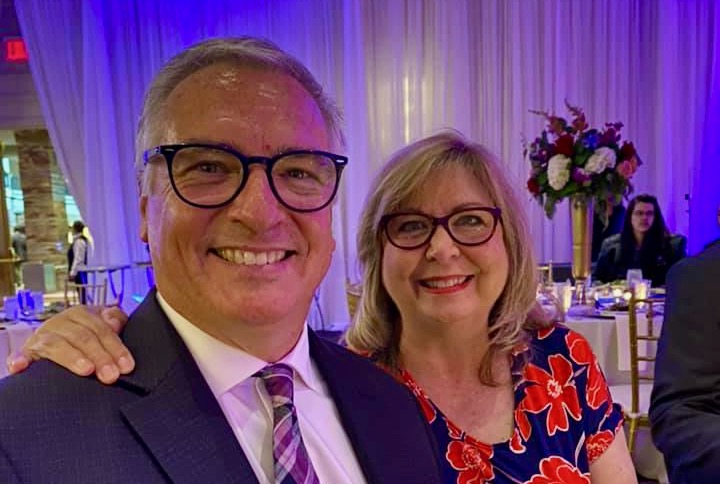Does the Old Testament Matter?
Rob Kranz, M.A. (’21)
A few years ago, a well-known American evangelical pastor made headlines for writing a book in which he asked church leaders: “would you consider unhitching your teaching of what it means to follow Jesus from all things old covenant?” He went on to claim that the Old Testament was near the top of the list of stumbling blocks to the faith of Christians. His statements were, probably, intentionally provocative. While the media tended to sensationalize his claims, many across the spectrum of Christian traditions decried it.
As someone pursuing a Master’s degree in Old Testament at ACU, these statements hit a nerve. While the author’s personal opinions were of little concern to me, his comments seemed to give voice to beliefs that lie just below the surface in many churches—even in my own.
 My family and I are part of a large church of Christ in Austin, TX. I co-teach a weekly Sunday School class whose pre-Covid attendance averaged close to 80 attendees. Most are over the age of 60 and have been faithful churchgoers their entire lives. They are dedicated and devout students of the Word. It is my great honor and privilege to teach this group. My co-teacher and I have an agreement that our studies will alternate between Old and New Testaments. When we study the Old Testament, there is a slight drop in our weekly attendance. Some regularly approach me with questions like, “When can we get back to the New Testament?” or “I really wish we were studying Jesus or Paul.” Even though we alternate our studies, that does not always equate to equal time. Over the last year, we have spent 43 weeks in the New Testament and 9 in the Old Testament (17%). Given these statistics, perhaps I should not have been surprised when I learned that this pastor’s book was one that our eldership jointly read and discussed. Thankfully, they were wise enough not to take up this call regarding the Old Testament.
My family and I are part of a large church of Christ in Austin, TX. I co-teach a weekly Sunday School class whose pre-Covid attendance averaged close to 80 attendees. Most are over the age of 60 and have been faithful churchgoers their entire lives. They are dedicated and devout students of the Word. It is my great honor and privilege to teach this group. My co-teacher and I have an agreement that our studies will alternate between Old and New Testaments. When we study the Old Testament, there is a slight drop in our weekly attendance. Some regularly approach me with questions like, “When can we get back to the New Testament?” or “I really wish we were studying Jesus or Paul.” Even though we alternate our studies, that does not always equate to equal time. Over the last year, we have spent 43 weeks in the New Testament and 9 in the Old Testament (17%). Given these statistics, perhaps I should not have been surprised when I learned that this pastor’s book was one that our eldership jointly read and discussed. Thankfully, they were wise enough not to take up this call regarding the Old Testament.
I suspect that my situation is not unique. What percentage of sermons do you hear from the Old Testament versus the New? How many adult classes regularly study the Old Testament? While we might be uncomfortable with the idea of “unhitching” from the Old Testament, how many of us actually turn to its pages in our devotional As church history has shown, whenever Christianity attempts to “unhitch” itself from the Old Testament, heresy, anti-Semitism, and un-Godly behavior soon follow.
There are many reasons why we should maintain a steady diet of Old Testament study within our churches. First and perhaps foremost, Jesus and all of his disciples were Jewish and relied entirely upon the Old Testament texts. There are hundreds of direct quotations from and allusions to the Old Testament within the New Testament. Not only that, the gospel writers map the story of Jesus over top Old Testament events (and locations). Even Paul—the vaunted missionary to the Gentiles—bases his arguments on the Old Testament. The Good News they preached was that, through Jesus Christ, God’s covenant loyalty, God’s grace and mercy extended beyond the children of Israel to include people of all nations.

But it is not enough for us to recognize that the New Testament quotes and alludes to the Old Testament. If we stop there, we tend to read the Old Testament through the lens of the New Testament. Rather, we must understand the Old Testament on its own terms to help us interpret the New Testament. Let’s consider an example. Each of the Gospels includes some form of the final words of Jesus. Mark and Matthew quote what is arguably the most well-known phrase: “At three o’clock Jesus cried out with a loud voice, “Eloi, Eloi, lema sabachthani?” which means, “My God, my God, why have you forsaken me?” (Mark 15:34, Matt 27:46, NRSV). A quick biblical footnote check indicates this is from Psalm 22:1 (MT 22:2). Reading this psalm through a New Testament lens, we notice a graphic description of suffering, including elements eerily reminiscent of Jesus’s crucifixion. Taken by itself, this quote, “My God, my God, why have you forsaken me?” has been used to support the idea that God abandoned Jesus while he was on the cross. A familiar hymn from the 1990s sung in our churches echoes this theme: “How great the pain of searing loss; the father turns his face away.” But does this line up with what Matthew and Mark are reporting from Jesus’ lips? Is God’s temporary abandonment of Jesus at the cross the theological message they intended?
A complete reading of Psalm 22 shows the purpose is quite the opposite. The poet is in a terrible predicament. Yet, rather than wallow in despair, the psalmist puts his suffering within
the context of God’s history of dependability. Throughout their history, God heard the cries of Israel and delivered them (vv 4–5). Based on God’s reliability, the poet calls for deliverance from the current trouble (vv 19–21). The psalmist then quickly turns to joyful praise because God has brought about the requested salvation. “For he did not despise or abhor, the affliction of the afflicted; he did not hide his face from me, but heard when I cried to him” (v 24). As a result, the people of Israel will praise God, nations from all ends of the earth will turn to God—and not just the current generation, but amazingly all who have died will bow down. Future generations will hear of God’s incredible deliverance.
This psalm is not a lament of the abandoned. Despite how things might seem in the midst of suffering, this psalm proclaims God’s overflowing salvation and hope—a message of deliverance so complete that it runs over the borders of Israel to infect all nations; salvation so over-abundant that it crosses the impenetrable boundary between the living and the dead. God’s deliverance is so outlandish that future generations will recount the mighty acts of God.
 The natural questions are who wrote this psalm and why did they write it? While attributed to David, I think its authorship and original context are of lesser importance. More significant is that this psalm resonates with meaning across generations and contexts. It could equally describe God’s deliverance of the Israelites from Egypt, David’s deliverance from Saul (and later Absalom), or God’s restoration of Israel from exile. The gospel writers of Matthew and Mark recognized that what God had accomplished via Jesus and the cross was also one of these miraculous events for God’s people. Psalm 22 was a way to communicate this significance.
The natural questions are who wrote this psalm and why did they write it? While attributed to David, I think its authorship and original context are of lesser importance. More significant is that this psalm resonates with meaning across generations and contexts. It could equally describe God’s deliverance of the Israelites from Egypt, David’s deliverance from Saul (and later Absalom), or God’s restoration of Israel from exile. The gospel writers of Matthew and Mark recognized that what God had accomplished via Jesus and the cross was also one of these miraculous events for God’s people. Psalm 22 was a way to communicate this significance.
The importance of Psalm 22 doesn’t end at the cross. This psalm is an ancient reminder that God is never far from those who call themselves children of God. It is an enduring witness that despite how things might look in our situation, we can take comfort in God’s ultimate deliverance. When we “unhitch” ourselves from the Old Testament or only read it through the lens of the New Testament, we risk losing the powerful witness of God’s people who have gone before us and the hope to which they testify.



Thanks Rob. Great insights here. We will want to think again about “rightly dividing”.